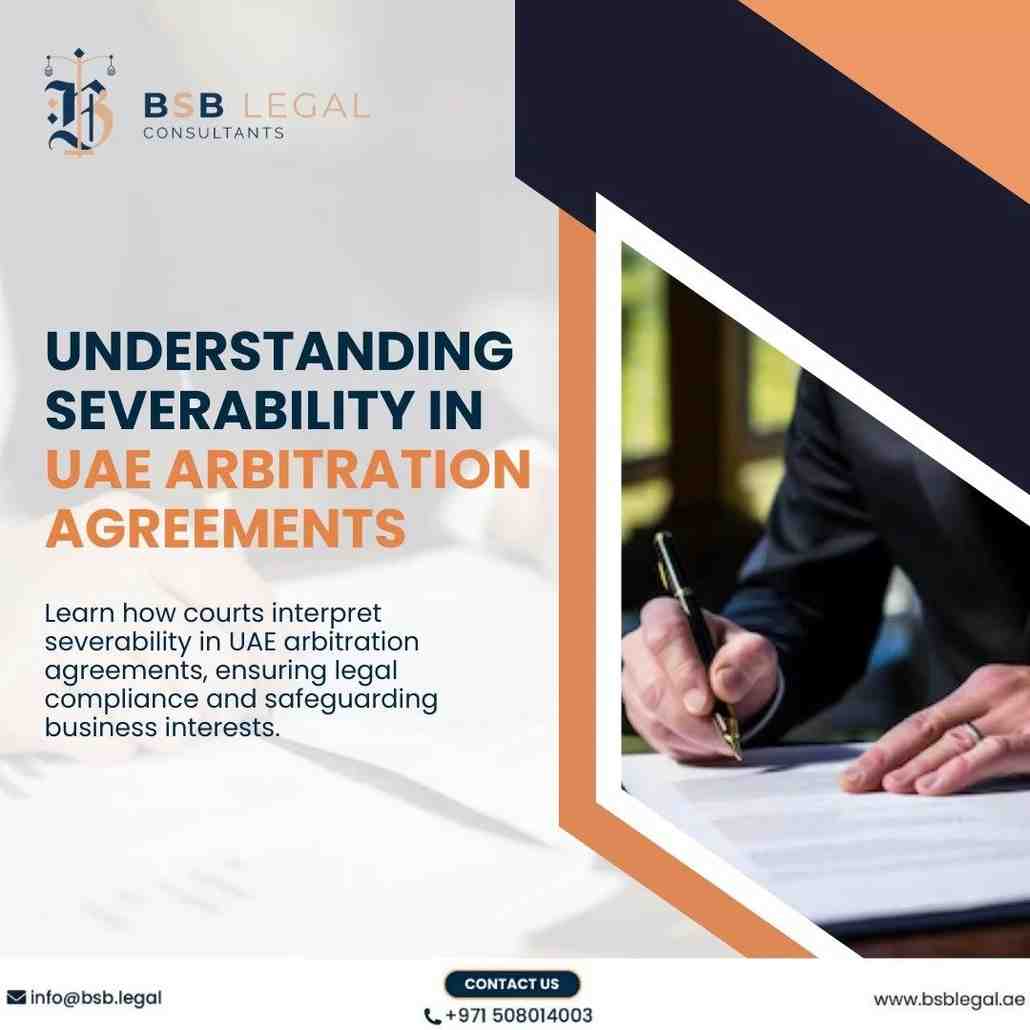


Learn how courts interpret severability in UAE arbitration agreements, ensuring legal compliance and safeguarding business interests.
Did you know that recent rulings by the Dubai Court of Cassation have redefined the landscape of arbitration agreements in the UAE? How do these decisions impact the validity of arbitration clauses within contracts? UAE Arbitration agreements play a vital role in commercial contracts, providing parties with a mechanism to resolve disputes outside of traditional court proceedings. Let’s delve deeper into this topic to understand its implications for businesses operating in the UAE.
Severability, or separability, is a legal principle. It states that an arbitration clause in a contract remains valid even if other parts of the contract are invalid. This principle is important because it preserves the parties’ agreement to resolve disputes through arbitration, regardless of any defects in the contract.
Article 6(1) of the UAE Arbitration Law establishes severability, meaning an arbitration clause is viewed as a separate agreement from the rest of the contract. This provision highlights the independence of UAE arbitration agreements and their significance in settling disputes.
Recent judgments by the Dubai Court of Cassation have provided valuable insights into the application of severability clauses in arbitration agreements. In cases such as Dubai Cassation Case No. 585 of 2023, the Court grappled with the question of whether the nullity of a contract due to public policy concerns would extend to invalidate the arbitration clause contained within it.
According to the Court, an arbitration clause in a contract may be void if the contract itself is deemed invalid due to public policy considerations, including violations of UAE laws. This interpretation highlights the Court’s adherence to upholding public policy and ensuring that agreements comply with legal standards.
The Dubai Court of Cassation’s rulings highlight the critical need for businesses in the UAE to draft their contracts and arbitration agreements meticulously, ensuring alignment with local laws and regulations. Here are some practical considerations:
Parties should pay careful attention to the language and provisions of their contracts, including arbitration clauses. It is advisable to seek legal guidance during the drafting and review process to ensure that agreements align with UAE laws and regulations.
Businesses should conduct thorough due diligence to ensure that their contracts and agreements do not violate public policy considerations in the UAE. Provisions that could violate public policy, like those that unfairly benefit one partner over another, need a close look and may require changes.
Clarity and specificity in arbitration clauses are essential to avoid ambiguity and potential challenges to their validity. Parties should clearly outline the scope of arbitration, the governing law, and the rules governing the arbitration process to minimize the risk of disputes.
While the recent decisions of the Dubai Court of Cassation have provided guidance on the application of severability clauses in arbitration agreements under UAE law, it is essential to consider international standards and practices in this context.
Internationally, the principle of severability is widely recognized and upheld in arbitration jurisprudence. Organizations such as the United Nations Commission on International Trade Law (UNCITRAL) and the International Chamber of Commerce (ICC) incorporate provisions on severability in their arbitration rules. For example, Article 23(1) of the UNCITRAL arbitration rules 2021 explicitly states that an arbitration clause shall be treated as an agreement independent from the other terms of the contract.
The alignment of UAE law with international standards on severability underscores the UAE’s commitment to fostering an arbitration-friendly environment and promoting legal certainty for businesses engaged in international transactions. By adhering to established principles of arbitration law, the UAE aims to enhance its reputation as a reliable hub for commercial dispute resolution.
The principle of severability in arbitration agreements is a fundamental aspect of dispute resolution in the UAE. Recent court rulings highlight the need for contracts and arbitration clauses to align with local laws and public policy. By adhering to these principles and adopting best practices in contract drafting, businesses can mitigate risks and navigate the complexities of commercial disputes in the UAE effectively. For UAE arbitration agreements compliant with UAE law, consult experienced arbitrators or legal advisor in Dubai.
